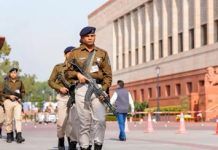The Centre has told the Delhi High Court that no blanket permission has been granted to any agency for interception or monitoring or decryption of any messages or information under the surveillance programmes like the Centralised Monitoring System (CMS), Network Traffic Analysis (NETRA), and National Intelligence Grid (NATGRID).
It said that the lawful interception or monitoring or decryption of any message or class of messages or any information stored in any computer resources, is done by authorised law enforcement agencies having legal and statutory powers and after due approval by the competent authority in each case.
The government, in its affidavit, defended the need for CMS, NETRA, and NATGRID surveillance systems saying that “grave threats to the country from terrorism, radicalisation, cross border terrorism, cybercrime, organized crime, drug cartels cannot be understated or ignored” and a robust mechanism “for timely and speedy collection of actionable intelligence including signal intelligence is imperative to counter threats to national security”.
The government said it is undeniably in legitimate state interest and is imperative that the requests for lawful interception or monitoring must be dealt with by the executive authority to maintain speed and promptitude in taking decisions.
The joint affidavit was filed by the Ministry of Home Affairs (MHA), Communication Ministry and Ministry of Electronics and Information Technology in response to a PIL which has claimed that citizens’ right to privacy was being “endangered” by these surveillance programmes.
“The lawful interception or monitoring or decryption of any message or class of messages or any information stored in any computer resources is done by authorised law enforcement agencies having legal and statutory powers and after due approval in each case by the competent authority as per the provisions of the Indian Telegraph Act and the Information Technology Act,” the affidavit, filed through central government standing counsel Ajay Digpaul, said.
The joint plea filed by NGOs Centre for Public Interest Litigation (CPIL) and Software Freedom Law Centre (SFLC), through advocate Prashant Bhushan, has claimed that these surveillance systems allow central and state law enforcement agencies to intercept and monitor all telecommunications in bulk which is an infringement of the fundamental right to privacy of individuals.
The NGOs have contended that under the existing legal framework there is an “insufficient oversight mechanism” to authorise and review the interception and monitoring orders issued by the state agencies.








